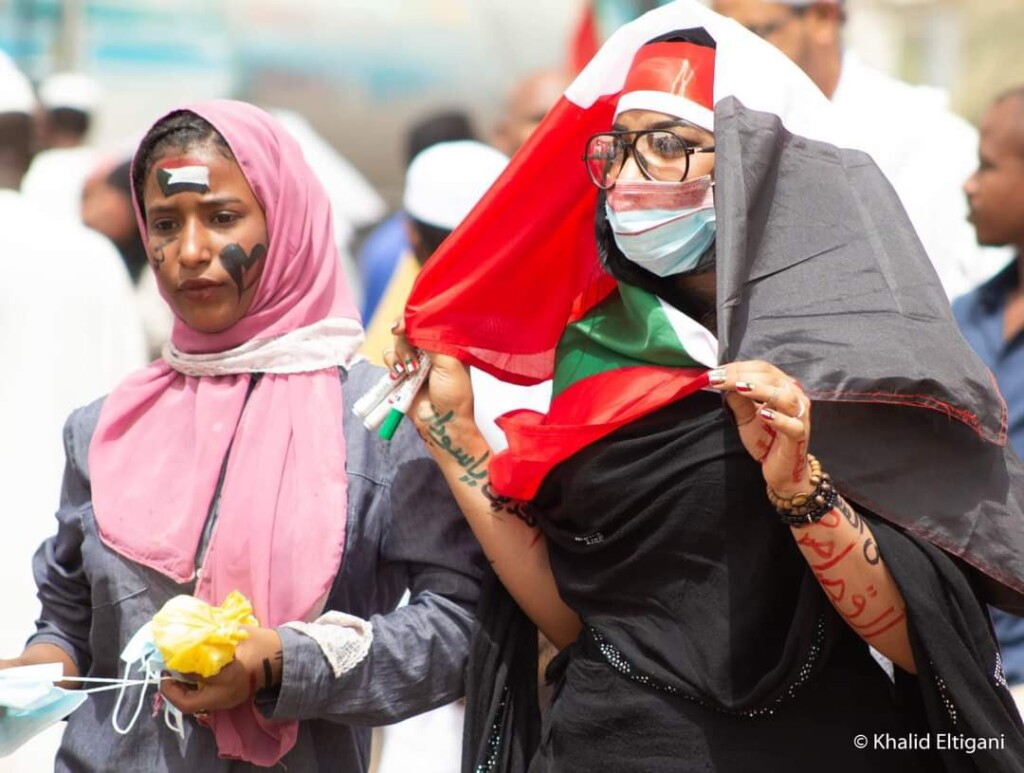Seven women activists detained at Sudan ‘enforced disappearances’ vigil

Women march in Sudan in 2022 (Credit: Khalid Eltigani)
At least seven women human rights defenders and a journalist were apprehended by authorities at a vigil organised by the Sudan Mothers Initiative (SMI) in Ed Damazin, Blue Nile region, on August 30. The event, held to commemorate the International Day of Victims of Enforced Disappearances, took an alarming turn as detentions were made.
SMI activist Mona Balla told Radio Dabanga she was summoned to security offices yesterday morning, held for the duration of the vigil, and then released, whilst authorities demanded an end to the gathering. She highlighted the arrest of Nahla El Badri, as well as five other activists, and photographer Musab Rizgallah from the vigil’s location.
Balla stated that their organisation stands for the “mothers of martyrs”, missing persons, and prisoners, as well as staunchly opposing the ongoing war, adding that they rejected “the use of sons and daughters as tools of war in Sudan”.
The SMI denounced civilian targeting, home occupation, and bombing. The group also condemned the ongoing damage to infrastructure and service facilities.
The mother’s group called on dialogue and unity to safeguard Sudan’s interests.
Missing persons
An advisor to families of missing people in Sudan, Osman El Basri, told Radio Dabanga that an estimated 446 persons have been reported missing since the outbreak of war on April 15.
Among them are 36 women, Amira Osman, head of the No Oppression of Women Initiative, reported separately.
El Basri pointed out a frightening increase in human rights violations and enforced disappearances, and that the internet and electricity outages in large sectors of the country have distorted the true figures of missing persons.
The United Nations said in a statement yesterday that enforced disappearances are frequently used as a “strategy to spread terror within society.
“Enforced disappearance has become a global problem and is not restricted to a specific region of the world. Once largely the product of military dictatorships, enforced disappearances can nowadays be perpetrated in complex situations of internal conflict, especially as a means of political repression of opponents,” the UN statement read.








 and then
and then